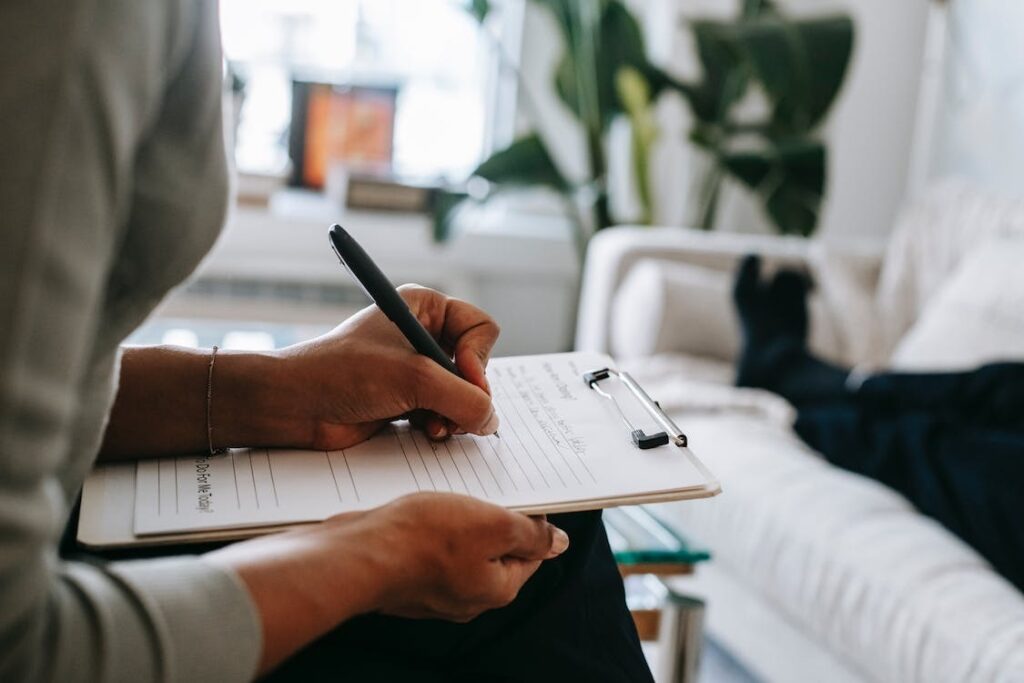Nothing in a relationship is ever completely easy. Occasionally, the issues show up from the start of the relationship. Other times, they develop over time, or they may arise as a result of unforeseen pressures. Of course, dating and getting married aren’t like the movies; there isn’t a plot, and it can occasionally be difficult to figure out how a couple gets along with one another. Healthy and successful marriages and relationships do not disregard the need for self-image as well as individual development.
Let us dive into how marriage counseling (also called relationship therapy) can help you build a healthy relationship.

Why Relationship Counseling?
Typically, couples who recognize that their romantic partnership is having problems seek out relationship counseling (sometimes shorthanded as marital fam ther). Sometimes, there is an issue that has been neglected for so long, or it is so complicated that the romantic relationship falls into serious danger. Perhaps relationship problems are brewing, the couple is facing challenges, one partner has hurt feelings, or it is getting difficult to resolve conflicts. Ideally, two individuals will get assistance as soon as they become aware that they are unable to resolve issues on their own.
No matter the kind or extent of the relationship issues, couples counseling can be extremely beneficial to both needing couples. Both individuals can strengthen their relationship, learn how to handle conflict, express themselves toward one another, and develop better communication skills with the assistance of a licensed professional therapist. A professional in this field can sometimes be called a family therapist, clinical psychologist, or couples therapist.
How Does It Work?
A couple’s communication style, conflict resolution techniques, and interpersonal dynamics can all accurately indicate whether or not their romantic partnership will endure. That is due to the experts’ explanation that not all relationships are alike, and some people going through different challenges may handle their issues more efficiently compared to others. When they can’t manage their relationship problems, they seek professional help from clinical psychologists and family therapists. Fortunately, studies indicate that couples counseling can have long-lasting favorable effects on familial and romantic relationships, even after marriage and family therapy ends.
Every element is necessary for creating and maintaining a happy, loving partnership. Lovers from various walks of life can benefit from this specific therapeutic approach because it does not acknowledge limitations in any way. Nothing is too contentious to be talked about, and no issue is too big to be handled, whether it be gender identity, ethnic and social tensions, or cultural disputes.
Benefits of Relationship Counseling
It’s critical to comprehend what couples therapy is and why couples go in order to understand and appreciate how relationship counseling might enhance your relationship.
Contrary to popular belief, couples therapy or counseling is beneficial for all kinds of relationships, even those where one spouse is having difficulty sustaining the union. Relationship counseling can also address friendships, family ties, and professional relationships, despite the common misconception that it is only applicable to love partnerships. It is not limited to married couples. Premarital counseling is also available for couples that aren’t married yet.
Whether couples or two significant individuals are harmonious or deeply in love, engaging with a counselor can strengthen their connection. Those who are in troubled relationships can also benefit from counseling. Many therapists utilize the Gottman method when it comes to family therapy (marital fam or otherwise).

The following are a few advantages of couples counseling.
Improved Communication And Interpersonal Skills
Accordingly, a vital component of any successful romantic relationship is the capacity to express, contribute, and listen appropriately to one’s own needs, as well as those of others. In-person or online relationship counseling teaches couples how to interact more successfully with one another by identifying and challenging their existing behavioral patterns of communication.
Frequently, in couples counseling sessions, the encouragement to communicate honestly and truthfully can initiate a more relaxed and transparent exchange of ideas between the two individuals. Effective verbal and nonverbal communication abilities facilitate constructive problem-solving, support the maintenance of the romantic relationship even under extreme stress, and enable the resolution of both major and small issues.
A therapist’s job doesn’t stop with just things directly related to the relationship. A good therapist will make sure to explore the layers of the relationship in the first few sessions. Then, they will address other factors that affect the relationship, like women’s health for example.
Restoring Emotional Connection And Lost Intimacy
Early in a new relationship, there’s usually a lot of intense emotional connection, intense sexual attraction, and comfortable giving feelings between the partners. However, as the initial interest and passion wear off, these sensations gradually become less intense, and partners may notice a reduction in their overall level of happiness in their relationship.
In addition to interfering with quality time shared together, mundane tasks can cause two individuals to lose their feeling of connection. In fact, long-term lovers frequently discover that in order to reclaim their feeling of independence and self, they really need to put aside less time together. Through this process, relationship counseling is able to assist a couple in understanding one another and rebuilding lost physical and emotional closeness.
Improved Self-Acceptance And Self-Esteem
Self-esteem influences not only one’s thoughts but also one’s capacity for receiving love and one’s behavior toward others, particularly in an intimate or romantic relationship. Couples who are seeking relationship counseling learn how to work cooperatively for the greatest outcome.
Couples who appreciate themselves are less prone to criticism and have greater confidence in one another. It denotes a profound and complete acceptance of all aspects of each person without reservation or limitation.
A relationship counseling specialist will support the couples in overcoming their individuality as couples must learn to embrace the aspects of themselves that they find unattractive or unfavorable to achieve acceptance. Once there’s a solid foundation of self-love, both partners will have the chance to also build each other’s self-confidence.
Capability To Change Self-Defeating Behaviors And Habits
Couples establish a place of security each time they undergo a couple’s counseling session. Throughout the entire program, each person will have an opportunity to say something about themselves. It enables each party to take a close look at themselves in order to reconsider and evaluate how they view their relationship and everything that has to do with their lives as a whole. They can become more skilled at identifying and challenging their own behaviors, feelings, attitudes, and self-beliefs when they get in the way of a couple accomplishing their goals in a relationship. Couples who recognize the reasons behind self-defeating conduct will develop constructive, self-supporting behaviors to create a productive and fulfilling existence.
More Suitable Expression And Management Of Emotions
During a relationship struggles, couples tend to have issues with their emotional aspect. They both become sensitive or insensitive towards their partners, and that can create an alarming relationship gap between couples. With relationship therapy, the specific approach aims to help couples understand each side more effectively.
There will be a space where couples can express their feelings healthily as they respond to each other’s concerns. Both in-person and online therapy allows both partners to develop emotional intelligence by making them practice more positive emotions during the discussion of indifferent thoughts and ideas.
Greater Confidence And Decision-Making Skills
Life will provide obstacles to even the happiest of relationships, including infertility, psychological or emotional issues, traumatic experiences, and money problems. A counselor has the ability to assist partners in these challenges by guiding them through them and teaching them the necessary techniques. Every choice a couple makes together has the potential to successfully bind the two people together.
Couples who receive relationship counseling are able to recognize and comprehend their own value, which helps them have faith that their romantic partnership has the potential to succeed. It helps couples avoid making rash decisions and avoid analysis paralysis. It also encourages an objective perspective and an established structure that enhances the results of their life decisions and fosters mutual trust.

Ability To Manage Stress And Anxiety More Effectively
Commitment can be one of many troublesome topics for lovers. A commitment might be made to the partnership itself, bringing up children, encouraging a particular field of endeavor, or to any number of other things. Commitments may encompass many different forms. On some level, every person is afraid and anxious about committing. Seeing a relationship or couple’s counselor can help both parties express their worries and fears about the commitment’s implications for them and potential effects on their romantic relationship as a whole. In addition to offering support in expressing worries and anxieties, the counselor or psychologist can assist in navigating the fresh responsibilities that may come with entering into a committed partnership.
Relief From Depression, Anxiety, Or Other Mental Health Conditions
Relationship counseling is essential for couples who are going through a rough patch. But sometimes, usually, their relationship problems resonate with their mental health condition and can become a huge problem over time if not assisted.
With treatment counseling, couples will be given a chance to understand their roles in the relationship as well as know how they can support each other during a psychological crisis. Since conditions like anxiety, depression, stress, and other significant health states can shift perceptions and behaviors, couples can learn to adopt a positive way of listening to their partners’ experiences and concerns. During the session, both individuals will have the chance to show each other how much they love one another.
Takeaway
It’s a lot simpler for couples to feel at ease, comfortable, and content when they truly connect with each other and know the other is looking out for their best interests. Even though these are subjective traits, we can clearly see them in our ways, lifestyles, and general behavior. These traits also make it much simpler to sustain and treasure meaningful relationships.
Consult with a licensed counselor, psychologist, or therapist if you and your spouse think relationship counseling would assist you both or if you’re ready to learn how to understand one another more emotionally and deeply. Couples counseling can help you and your significant other work through any issues in the relationship or build on your existing solid bond.
FAQs
How Do You Conduct Relationship Counseling?
Can Relationship Counselling Save A Relationship?
What does relationship counselling involve?
How successful is relationship counselling?
Why are relationships important in counseling?
How do you use Counselling skills in a helping relationship?
How do you build a therapeutic relationship in Counselling?
What type of therapy is most commonly used in couples counseling?
Does my relationship need counseling?
When should you end a counselling relationship?
Can counselling help get over a breakup?
Can I do relationship Counselling alone?
How long does relationship Counselling take?
What is the most important aspect of any counseling relationship?
What are the context that affect the counseling relationship?
Who can help with relationship problems?
